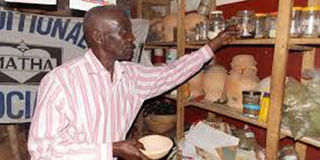Collaboration is key for research

Researchers on the African continent are facing the kinds of struggles that become predictable in under-resourced institutions, an Africa Day Mini-Symposium held recently at the Institute of Infectious Disease and Molecular Medicine (IDM) at the University of Cape Town (UCT) Faculty of Health Sciences heard. The symposium focused on the opportunities and challenges in capacity-development experienced by researchers on the continent.
In her introductory talk on ‘Capacity Building at the IDM,’ director Prof Valerie Mizrahi said: “We are grounded in Africa. We work for Africa. If our work has global impact – that’s a bonus.” She highlighted the IDM’s collaborative footprint on the continent, which includes 18 other institutions. This is in addition to collaborations with multiple research consortia.
The institute’s vision is to be an international centre of excellence where world-class scientists work together to tackle diseases of major importance in Africa. Co-organiser Dr Muki Shey, who studied at the University of Yaoundé I in Cameroon, detailed the challenges students experienced with the absence of proper laboratory infrastructure. When he moved to South Africa for his postgraduate studies several years ago, he didn’t recognise most of the equipment in the labs. “I’d never seen or used a pipette aid before. And now I’m a Wellcome Intermediate Fellow.”
Recognising not only the limited exposure that his education presented him with, but also the growth of his trajectory, Shey said he wants to “change the future and be part of creating a well-resourced environment. My children should have access to resources whether they are in Cameroon or anywhere else.”
Pharmacogenetics professor Collet Dandara of the Drug and Metabolism and Cancer Research Group, commented: “Herbal medicines shouldn’t be stigmatised. It is important to note that the work that must be done with traditional healers is complicated. Especially as they have a history of their work being stolen from them. This way, we can advise traditional healers about how the medicine they recommend reacts with the Western drugs. There is value in collaboration, not only at UCT, but also nationally and regionally as well.”
Co-organiser Dr Elvis Kidzeru, a Dermatology postdoctoral fellow at UCT, said when he was at the University of Buea in Cameroon, there was pressure to perform well while working under particularly limited resources. The availability of better infrastructure and mentorship in South Africa enabled him to successfully complete his doctoral studies.
Throughout the programme, researchers spoke of the work they have done across the continent and the learnings they have garnered from this work. Mr Julius Chia echoed Prof Mizrahi’s sentiment, saying technical problems were among challenges resource-limited institutions faced. “In Africa, we are not telling our own stories. These dynamics have to change, and we need to speak more intentionally about going back home.”
Thami Nkwanyane,
[email protected]




